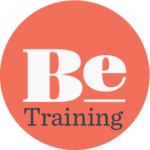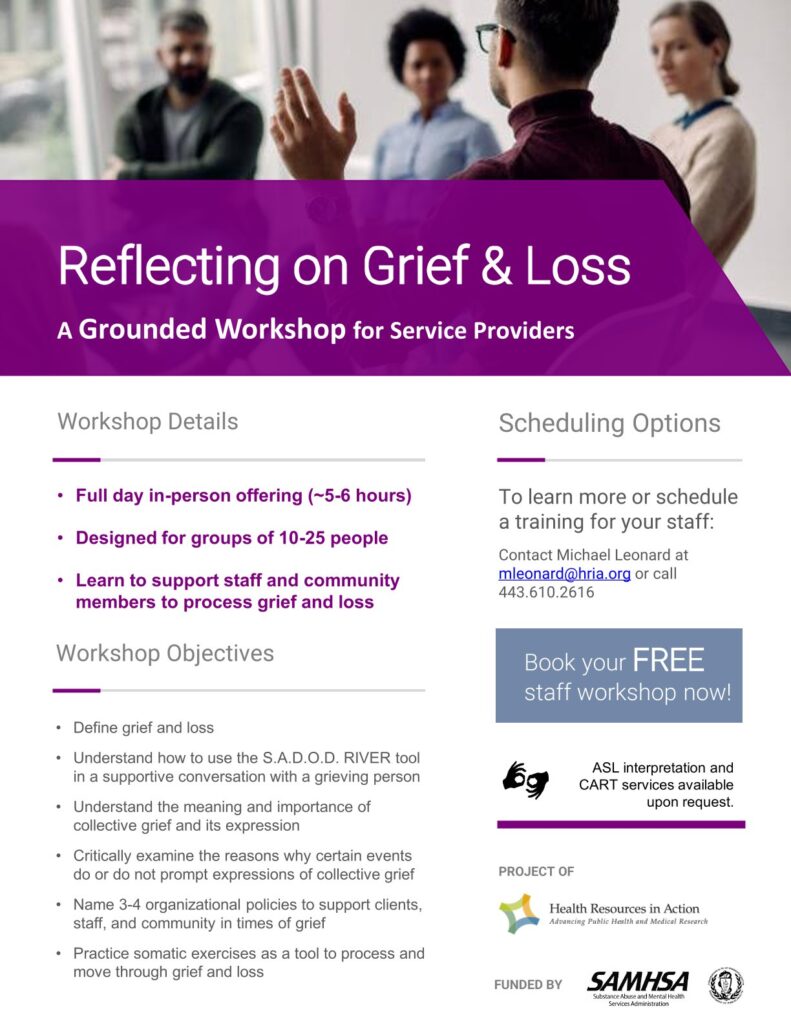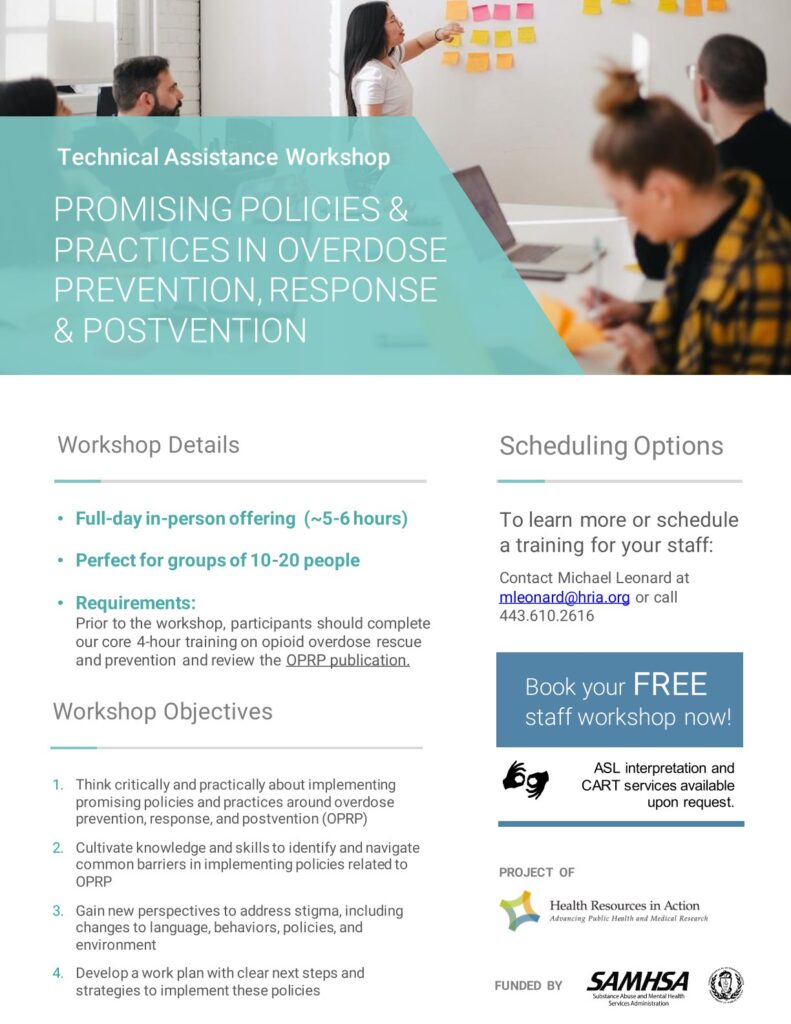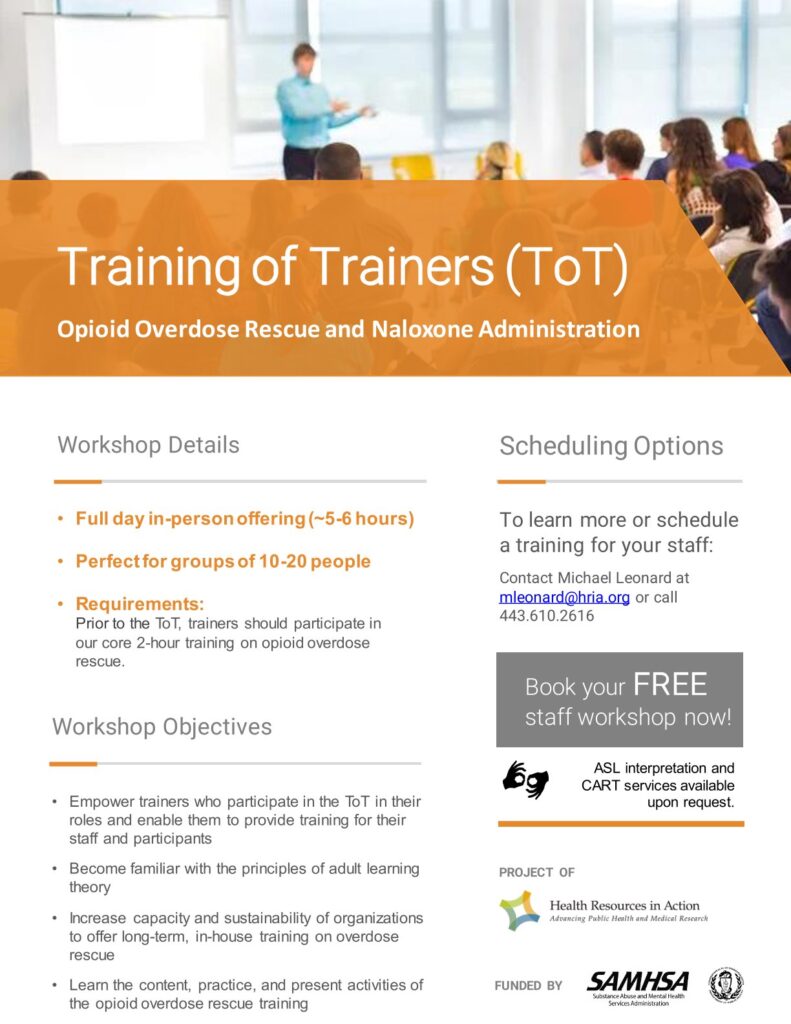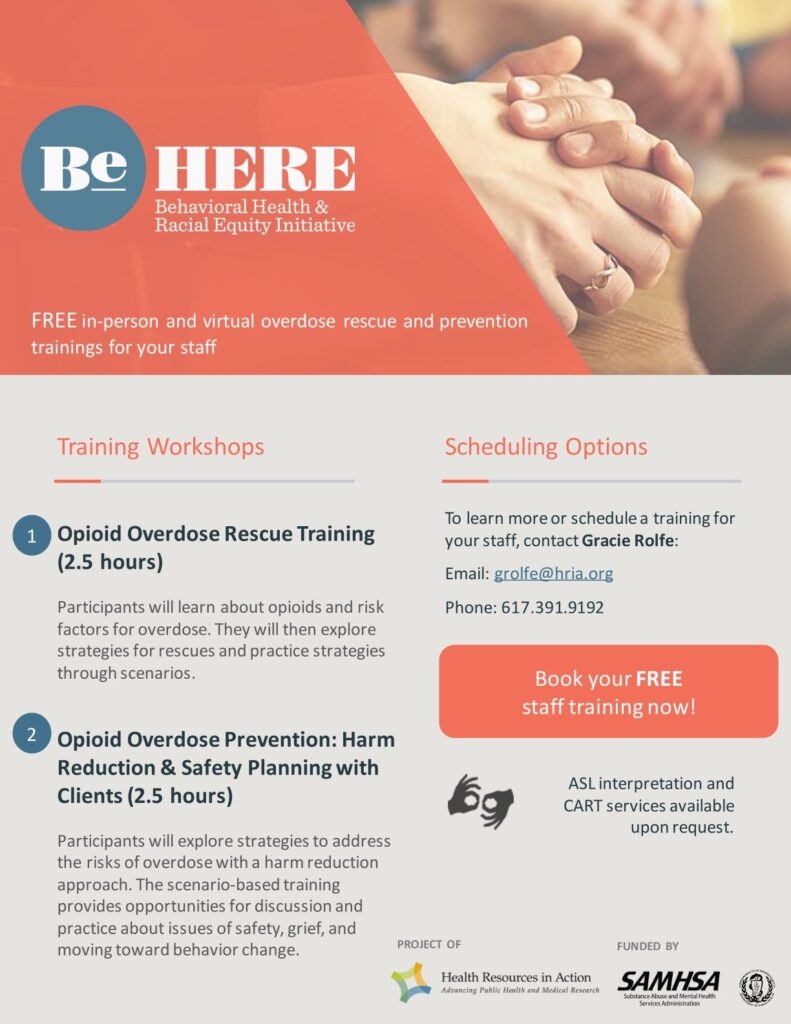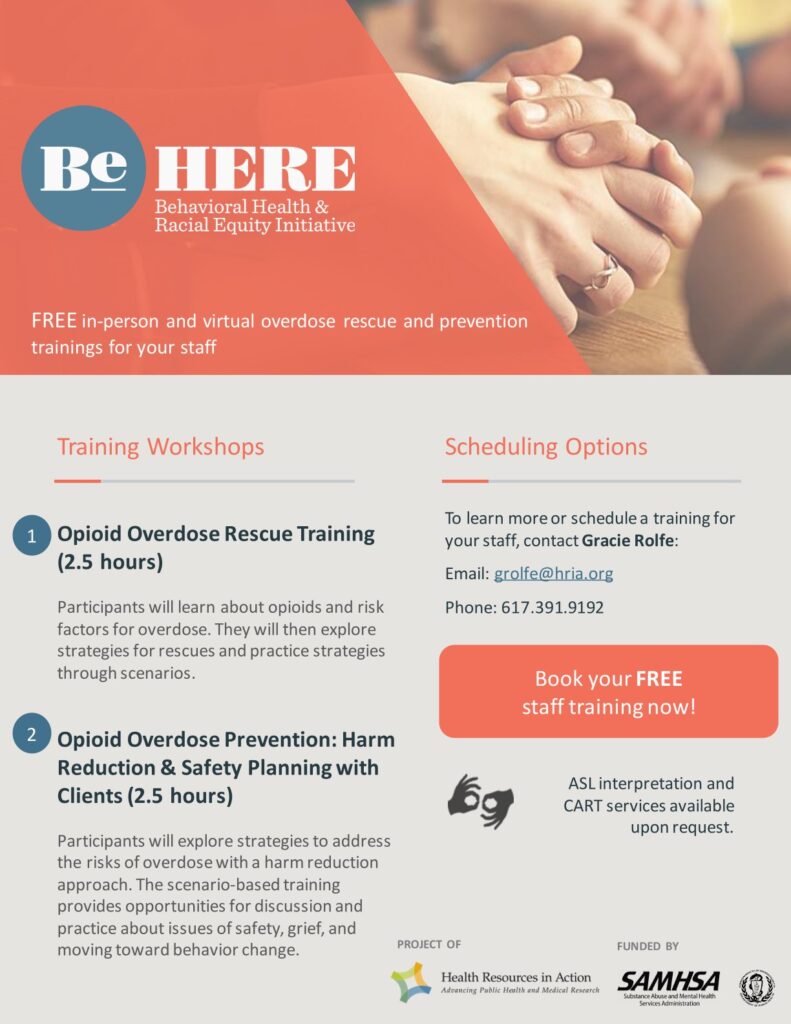New publication in the journal of Harm Reduction
Human service settings, especially those not specifically focused on supporting people who use drugs (PWUD), offer a unique opportunity to prevent overdose deaths. During the COVID-19 pandemic, building capacity for overdose prevention, harm reduction, and to address barriers to treatment, recovery, and support services required a virtual training format. Post-pandemic, virtual training remains a cost-effective and convenient alternative to in-person training.
Between April 2020 and June 2022, HRiA’s Behavioral Health and Racial Equity (BeHERE) Training Initiative of Health Resources in Action delivered 224 online trainings. Researchers evaluated the effectiveness of these trainings through the analysis of post-training and follow-up surveys and key informant interviews.
The findings showed BeHERE’s trainings were relevant, engaging, and satisfying to trainees; increased their knowledge, skills, and confidence; and influenced workplace performance. In addition, the evaluation also identified aspects of training that make a virtual format effective at improving the capacity of non-SUD settings to address substance use and support PWUD. Findings offer insights for those interested in delivery of virtual training, as well as training to influence the practice of human service providers across different settings to support PWUD.
Read the full article: https://link.springer.com/article/10.1186/s12954-024-00948-5
Suggested citation: HW Kenefick. A Wing. “BeHERE’s effective virtual training to build capacity to support people who use drugs in non-substance use disorder settings.” Harm Reduction Journal, Vol. 21, article number 38. February 13, 2024.

